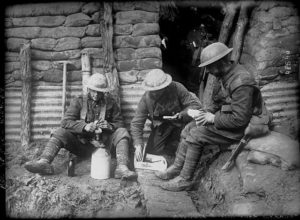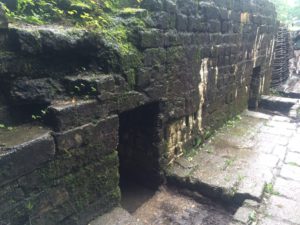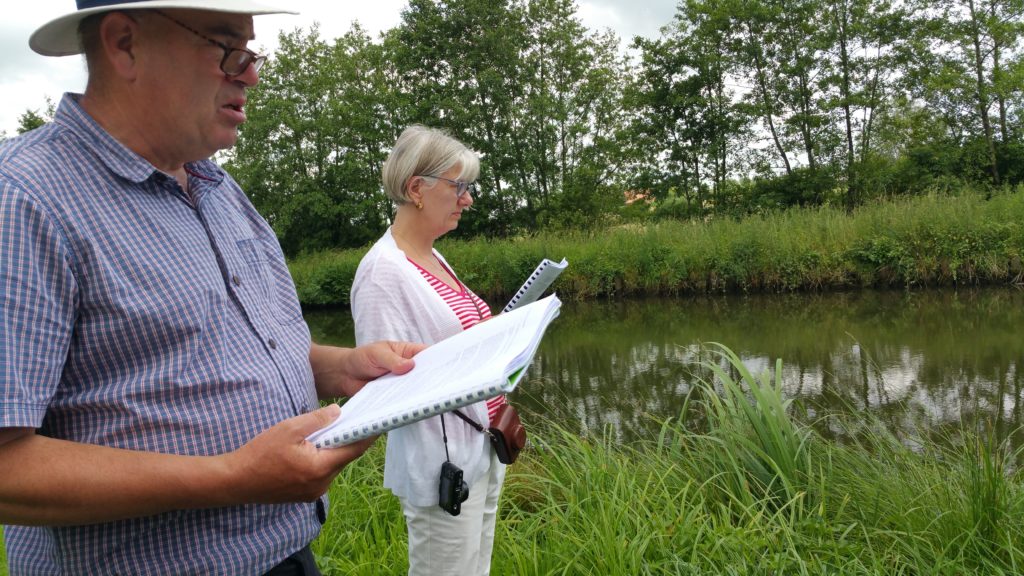
Bibliotheque Nationale de France
Most of these poets are long forgotten, and even among those still read just a few of their most anthologized works linger in our memories. These few poems have had, however, an enormous influence on how three generations have thought about World War I. In The Price of Pity, Martin Stephen puts forth that “society’s vision of this historical event … was ironically determined by a literary response to it, and it is the vision of some of the war’s poets that has dominated the popular image of what the war was to those who fought in it and lived through it.” (3) You have likely had snatches of these poets’ verses running through your head since you started to read this post: Rupert Brooke’s “1914: The Soldier”, John McCrae’s “In Flanders Fields”, and perhaps above all Wilfred Owen’s “Dulce et Decorum Est”.
As worthy as these poems are of our attention, they tell only a small part of the story. To better grasp the diversity of perspectives, we must look at a broader range of WWI poetry. Even more important, we must be willing to let fall away the received ideas borne of our collective image of the war. When we cling to these ideas, we become deaf to WWI poetry. In the words of Santanu Das, “First World War poetry often ceases to be poetry and begins to look like history by proxy …. First World War poetry represents one of those primal moments when poetic form bears most fully the weight of trauma. Art and testimony are often yoked together by real-life violence, leading to formal realignment, invention or dissonance. Categories such as ‘pro-war’ and ‘anti-war’ often prove inadequate, when tested against the complexity of individual poems.” (4)

Our Classical Pursuits trip No Mere Discord of Flags embraces this complexity. We go into trenches, and beyond them. With the help of a trained historian, we’ll trace the Western Front along Ypres and the Somme. We’ll stand in a dugout believed to have been used by Siegfried Sassoon and look through a WWI periscope as we read Robert Graves’s “Through the Periscope.” In Ors, we’ll visit the grave of Wilfred Owen and the forester’s house where he spent his last night before being killed in November 1918. Our guide will take us even deeper in, going behind the lines to the casualty clearing stations and the Talbot House, which offered food, beds, gardens, and momentary peace to tired soldiers.
Along the way, we’ll read and discuss poems, well known and not, that evoke despair, anger, joy, and outrage. Poems that speak of beauty, cruelty, death, loneliness, desire, and love. As we peel back the layers that time has placed between us and these poets, we’ll each build a more nuanced understanding of what World War I meant to those who lived it and what the war means for our world today. Join Classical Pursuits for a unique and moving experience in May 2018 with No Mere Discord of Flags.

- Stuart Lee, An Introduction to WWI Poetry (http://ww1lit.nsms.ox.ac.uk/ww1lit/education/tutorials/intro/intro)
- Santanu Das, “Reframing First World War poetry” (https://www.bl.uk/world-war-one/articles/reframing-first-world-war-poetry)
- Martin Stephen, The Price of Pity, 1996, p. xii
- Santanu Das

Latest Updates
Seminars on literature from the ancient world to today
See the world through the eyes of visionary writers and artists
An annual gathering of lifelong learners